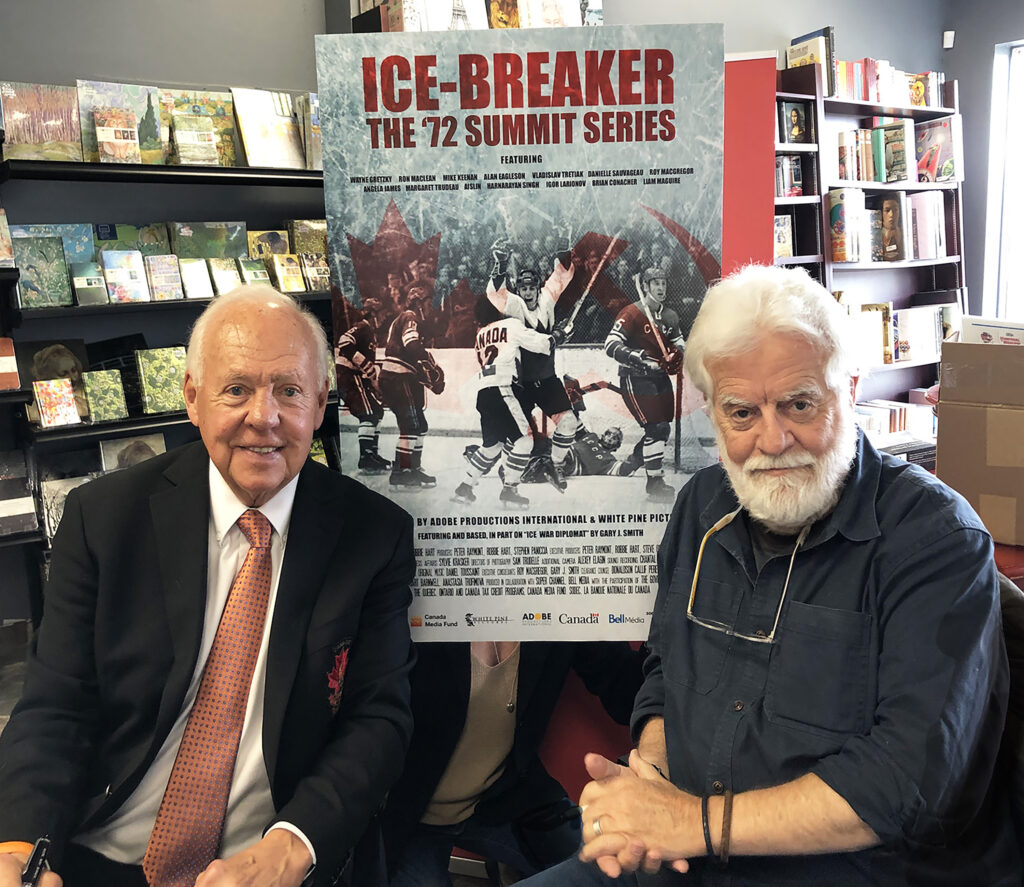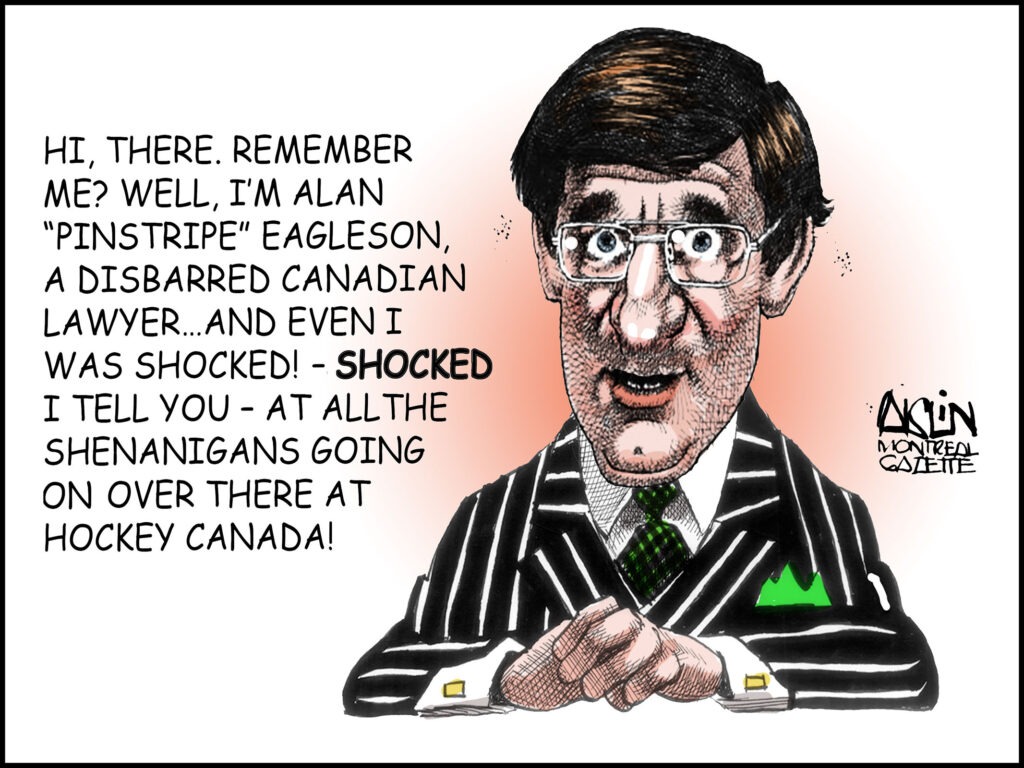Hockey Canada—From the Hall of Fame to a Hall of Shame

L. Ian MacDonald
October 11, 2022
The puck stops here.
That’s what they should be telling themselves at Hockey Canada, now engulfed in a stunning scandal of lies, cover-ups and payoffs that have diminished their brand and brought discredit to our national game.
And it’s already a classic case study in Comms 101—How Not to Do Damage Control in a Crisis. It starts at the top, and it goes back years, if not decades, in an organization created to represent the best. And has ended up instead as symbol of the worst.
From the hall of fame to a hall of shame.
And it starts at the top, with the executive and management of Hockey Canada, shamelessly blaming their self-inflicted wounds on others. They’ve been dumped by sponsors, shunned by would-be hosts of events, and had their federal funding cut off. They were told by the prime minister himself that their only option was the resignation of their board and management, and still they blamed others for the hole which they dug for themselves.
In response to revelations of a culture of misogyny and sexual assault at elite levels of junior hockey going back nearly two decades, Hockey Canada interim board chair Andrea Skinner complained to a parliamentary probe in October of being cast as “a scapegoat”.

And this despite reports, as Ian Austen wrote in the New York Times weekly Canada Letter, that Hockey Canada “created a slush fund from registration fees, including those for children and had used it to, among other things, pay $3.5 million to settle a lawsuit by a woman who accused eight members of the world junior team of sexually assaulting her in 2018.”
There’s a difference between rising young hockey stars styling themselves as ladies’ men on the one hand, and participating in a gang bang on the other. It’s called rape, and it’s in the Criminal Code. So is obstruction of justice. People can go to jail.
Alan Eagleson, the architect of the 1972 Canada-Soviet hockey series, would know about that, having copped a guilty plea for six counts of fraud and being sentenced to 18 months in prison in a Toronto court in 1997. A quarter century on, looking at Hockey Canada’S entrenched culture of entitlement, it’s fair to say even “the Eagle” wouldn’t have been so insensitive. self-absorbed and stupid.
And then there’s the list of sponsors cancelling their endorsements, not to mention their financial support, with Hockey Canada for the coming season, including the men’s world junior championship being co-hosted by Moncton and Halifax over the Christmas holidays.
The cancellation lineup is a Who’s Who of corporate Canada—Tim Horton’s, Esso, Scotia Bank, Telus and Nike. And retail giant Canadian Tire has permanently severed its ties with Hockey Canada. The mayors of Moncton and Halifax weren’t sure they wanted their cities’ names associated with Hockey Canada. New Brunswick Premier Blaine Higgs talked about pulling $1.25 million in provincial support for the tournament and Nova Scotia Premier Tim Houston declared “meaningful changes” were necessary at Hockey Canada before proceeding with an event that came to Canada only after Russia forfeited the hosting role because of its invasion of Ukraine.
Well, as Gordie Howe used to say to rookies, elbows famously up in the corners: “Welcome to the NHL.” And by October 8, Skinner had indeed submitted her resignation. On October 11, the entire management and board of Hockey Canada also resigned. Given the overwhelming outrage, the outcome was inevitable.
The Hockey Canada scandal happened to coincide with the culmination of a season of celebration of the 50th anniversary of the famed 1972 September Summit Series.
The celebration of one has been a striking contrast with the shame of the other.
There’s more to it than nostalgia, there’s a sense of yearning for the heroes of those days.
You could see it on the Saturday of Thanksgiving Weekend during a signing by Terry Mosher for Montreal to Moscow, his new bestselling book of Aislin cartoons, drawings and stories on the 1972 series, with an introduction by Yvan Cournoyer, who won 10 Stanley Cups with the Montreal Canadiens, including four consecutive Cup victories as captain from 1976-79, and is now a goodwill ambassador for the Habs.
Mosher and Cournoyer were at Librairie Clio at Plaza Pointe Claire. Clio’s is one of those important independent bookstores where it’s a pleasure just to browse for Canadian fiction and non-fiction titles.
Terry and Yvan signed without pausing for four straight hours, as people lined up for autographed copies and selfies. They sold hundreds of books, so many that Terry’s wife, water colour artist Mary Hughson, drove home to get another box just as they were running out of stock.
And people of a certain age all remembered where they were on that famous September night, when Team Canada completed a three-game comeback as Paul Henderson scored the winning goal, to break a tie with only 34 seconds to play.
In the most famous hockey photo of all time, Henderson jumped into Cournoyer’s arms, a moment also framed in an Aislin cartoon of them at the summit of what he called “Canada’s very own Mount Rushmore.”
Cournoyer was in on the winning goal, and explained how he’d set it up at the end of a long shift which found him stranded across the ice from the Team Canada bench, but in the Russian end.
“I was exhausted,” he said, “so I stayed there and that’s when I got the puck.” He said he just passed it toward the goal, where Henderson fired it at Vladislav Tretiak. Phil Esposito then got the rebound over to Henderson, who tipped it into the net, his third winning goal in as many games in Moscow.
What has been neglected in most of the histories is that Cournoyer had scored the tying goal with only seven minutes left in the game.
“Without your tying goal,” he was reminded, “there would have been no winning goal.”
As for how it played at home, Cournoyer said: “We had no idea that the country had stopped to watch the game.”
He does now, from people at book signings and from looking at the video of the game.
“Now I can see it,” he said. “I watched it last night for the first time,” at home with Evelyn, his wife and partner of 39 years.
The good guys won at the very end.
L. Ian MacDonald is Editor and Publisher of Policy Magazine, as well as a lifelong Habs fan.
